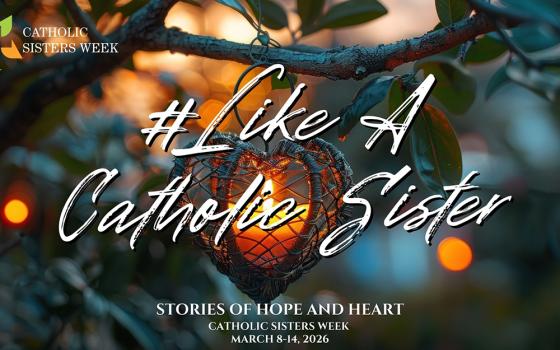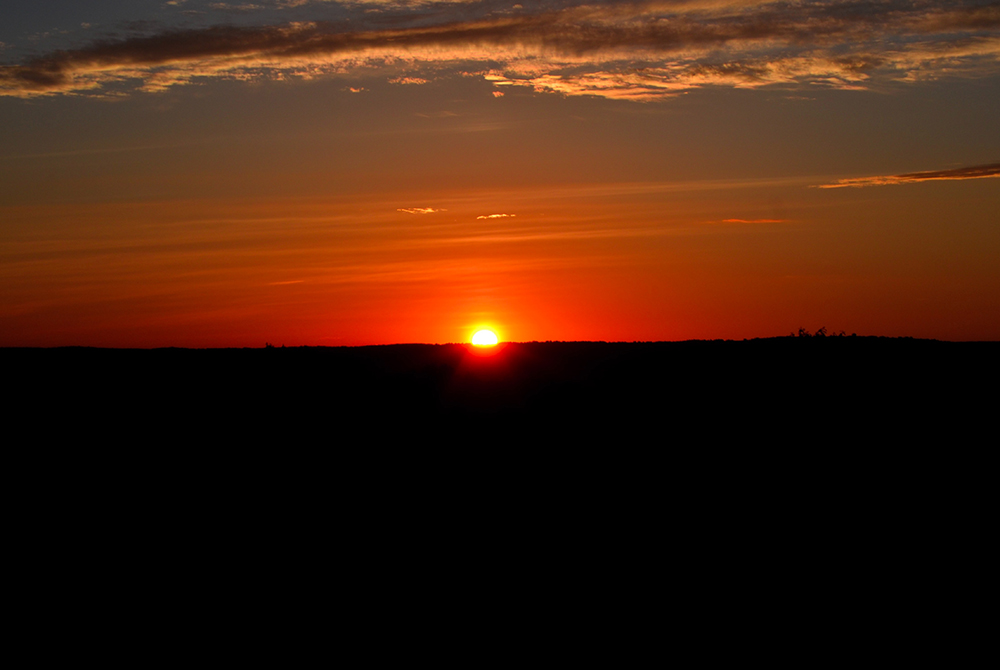
(Unsplash/Meadow Marie)
I went home for the Easter holiday and was able to spend a couple hours prepping my garden for the spring and summer. I raked out the dead leaves, tossed the soil with my homemade compost, and hoed the beds to create perfect resting places for my future fruits and veggies. I left all my electronics inside as I soaked in the rays of sun in silence, interrupted only by the songs of the awakening spring birds.
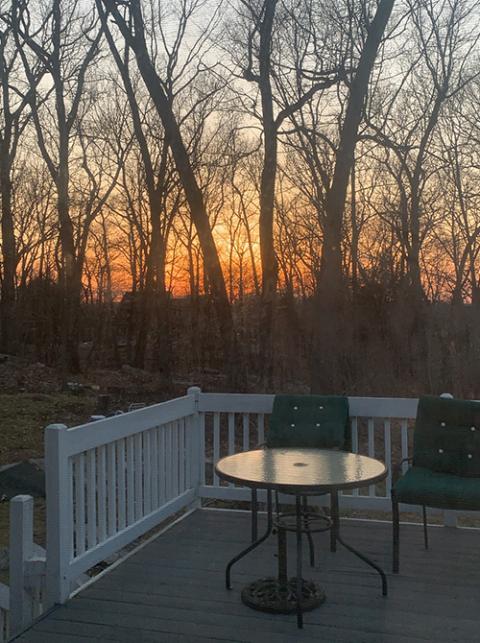
My backyard in Connecticut directly looks upon the sunset, and I almost forgot how beautiful the sky becomes every night. (Celina Kim Chapman)
As much as I love New York City, I appreciate my home in Connecticut for the nature. During the couple of days I was home for Easter, my friends and I went bike riding and skateboarding along our town's riverwalk. At the end of the trail, we stopped to rest on some benches and, again in silence, we all appreciated the beautiful day and the warmth of the glowing sun.
Although churches in my area are welcoming people back to worship in person, my family opted to watch our Easter service online. For most of the pandemic, our church has partnered with another church in the area for online services, and this Sunday was no exception. Instead of the Rev. Amjad Samuel preaching, we listened to the Rev. Norma Schmidt discuss the themes from the Bible's Easter story in connection to our lives today. She talked about how the biblical tale of one of the most important days of the year for Christians seems to have actually been a quiet celebration in contradiction to our modern-day festivities.
Easter for me was always about yelling "hallelujah" at the top of my lungs, eating tons of candy and chocolate, and gathering with friends and family. Meanwhile, in the Bible, Jesus' resurrection was known by only a few of his followers, and his followers were not all together on this day. Those who were close to Jesus found out about the resurrection in small groups.
Reverend Norma reflected on how, because of the pandemic, we actually celebrated Easter the way Jesus and his followers did initially: not in masses or through extravagant gestures, but with intentional human interaction and bubbling hope that there is light at the end of a dark and lonely tunnel.
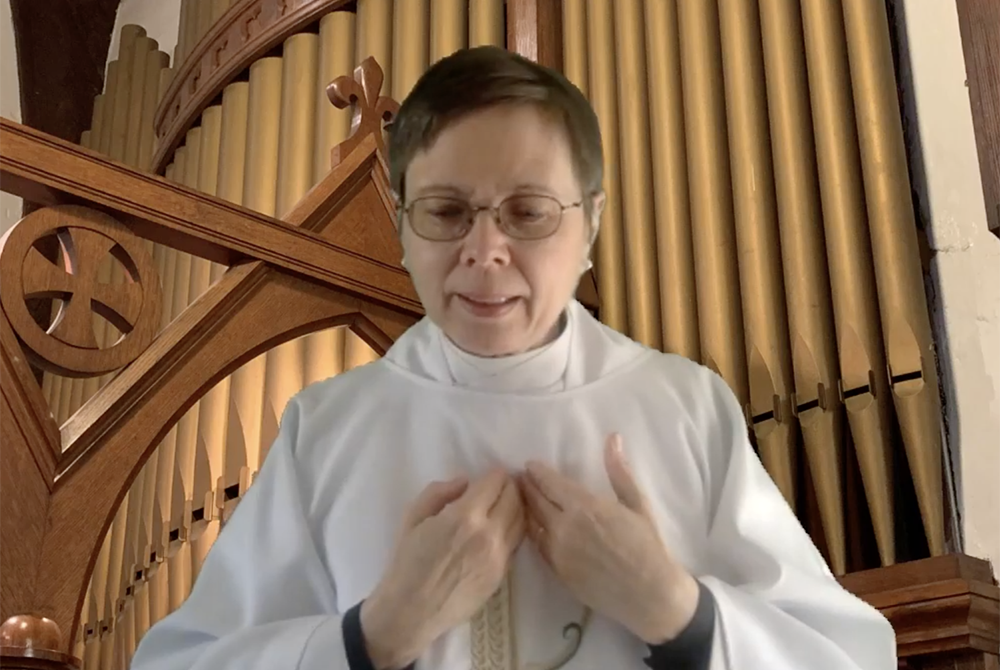
This is a screenshot from the Easter church service with St. Paul's Episcopal Church and St. Thomas' Church. The Rev. Norma Schmidt was the main preacher during this service. (Courtesy of Celina Kim Chapman)
Reverend Norma also pointed out that Easter is not one day, but the beginning of a 50-day Easter period. Just as Ash Wednesday is not the only day we observe Lent, the first Sunday of Easter is not the end of Jesus' resurrection. It is just the beginning.
"Life has changed, not ended," Reverend Norma said in her sermon.
At the end of the service, Reverend Amjad did his own reflection on her words and pointed out this phrase again. He had everyone online and in person say it aloud and together. We repeated it multiple times, almost with the same fire and tenacity of yelling, "Hallelujah! The Lord has risen, indeed!"
The two phrases do not feel so different, though, and I think proclaiming such a phrase in a time like today is parallel to the story of Jesus rising to heaven.
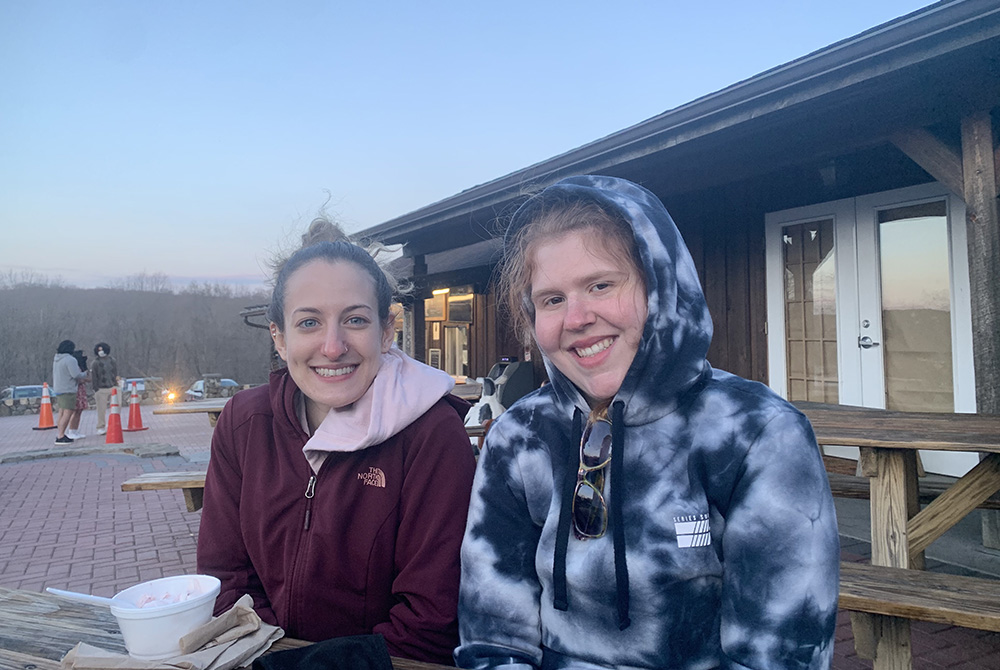
My best friends, Amy Sheldon and Veronica Wood, at Rich's Farm in Oxford, Connecticut. It was cold, as the sun was going down, but we endured it for the really good ice cream. (Celina Kim Chapman)
Although COVID-19 is still here, life has felt more and more normal. My friends and I met up in our hometown like we used to do throughout high school and college. We got fresh ice cream from our local creamery, celebrated our friend David's birthday by going out to dinner, and even had a good old-fashioned bonfire in someone's backyard. It was only a few of us gathering at a time, but my heart was fulfilled in their presence, and my usual day-to-day anxiety was lulled into a sweet, calming peace. I felt the newness of spring seeping into my heart as the cold winter months melted away.
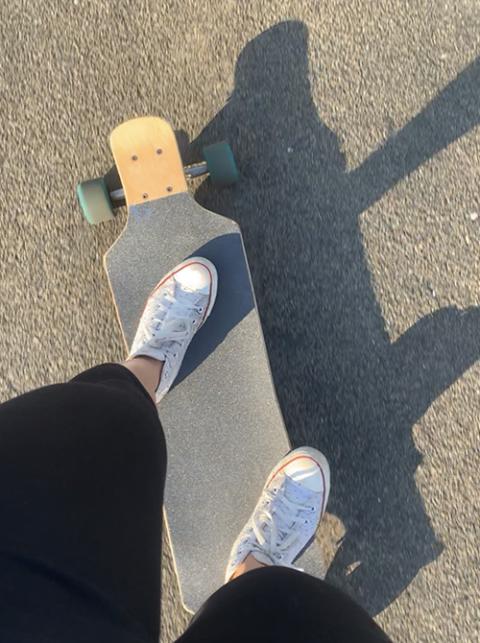
I have a bike in New York City, and I keep my longboard in Connecticut, but I miss riding it to my university every day. During the Easter break, I got to ride around my neighborhood and with my friends. (Celina Kim Chapman)
We are now gathering more comfortably, as we all have been getting the vaccine, but these gatherings are not exactly the same as how we used to hang out pre-2020. I feel as if my friends and I now simply enjoy being together, no matter what we do. We could be snowboarding and skiing, but we also could be sitting on benches in silence, enjoying a quiet, sunny day.
One of the most compelling points at the end of Reverend Norma's sermon was that going back to "life as normal" is not something we should focus on.
"That would not be resurrection. That would be resuscitation," she said.
I pause now as I write it down because it makes me chuckle.
We are not meant to bring back the past — that is not what Jesus died for. Jesus died so we can forgive our past sins and move forward. He was resurrected and rose to heaven as our savior, showing us that from darkness and pain comes the promise of a better future. Easter, in all its glory, is a seedling ripping through the dirt and grime and budding into the flower it knows it's meant to be.
As we continue through this joyous season, I reflect upon how a dormant winter and isolated year don't mean that the garden of my life will not flourish and grow. Last year was the first year I started gardening, and I only harvested a few cucumbers. My carrots and tomatoes didn't bear any crop, and my lavender plants were bought in full bloom and transferred from a pot. Still, I felt accomplished that I produced something, but this doesn't mean I am complacent. I will work harder this year to tend to my seedlings properly and plant vegetables that are conducive to growth in Connecticut soil.
Advertisement
The idea is not to go back to my old pre-COVID-19 ways of perfectionism or working only for the final results. The idea is also not to be settled with how I was living my life and how I was tending to my garden during the hardest months the world has ever had to bear. It's about saying, "Hallelujah, life has changed, not ended. Hallelujah, Christ has risen, indeed." I am not who I was in 2019 or in 2020, so instead of saying, "I wish life was like it was before," I am saying, "I hope life continues to progress forward."
My garden this year may or may not be plentiful, but it will all depend on my efforts before the bloom that will either give me an abundant harvest or nothing at all. Either way, I have found that practicing peace, searching for moments in the sun, and finding ways to feel full, not just live full, is the key to celebrating Easter all spring long.






